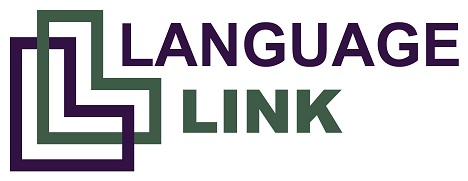Business English Courses

Effective communication is the key to success. ‘Language Link’ provides a variety of Business English and ESP training courses in addition to Professional Development courses. We deliver tailored and comprehensive training which focuses not only on your company’s objectives but also on the individual trainee’s language needs. We are dedicated to producing quality courses which lead to positive goal-orientated results. All courses are also available online. See below for a list of the most popular Business English and ESP training courses and for further information on our website: www.languagelink.ie
You can also see our Professional Development Training here: Business English - Prof Dev't Training



Business Communication Skills
English is currently the language of international business, therefore, business people must be able to communicate effectively in English in order to achieve professional success. This course aims to provide participants with essential English language skills so they can
- manage and actively participate in meetings;
- engage in telephone conversations with English-speakers;
- give clear and compelling presentations and project updates;
- negotiate with English-speaking clients and customers and
- write important business emails and documents.
In this highly interactive course, participants will acquire an understanding of crucial business vocabulary and related grammar structures through group work, practical exercises and simulated discussions. The aim of this course is to cultivate participants’ general comprehension of Business English and to provide them with practical language strategies, which they can use to communicate effectively in a variety of important business contexts.
Business Writing Skills
English is the language of international business and, therefore, it is very important that Business people are able to adequately express themselves in spoken and written English. In order to communicate effectively in written English, a business person must not only possess a good understanding of the English lexicon and related syntactical structures and rules but he must also be able to use the appropriate lexical and syntactic structure in particular types of written business correspondence. In this highly interactive course, participants will learn situation-specific vocabulary and grammar structures they can use to write clear and compelling emails, reports, proposals and CVs through group work and a variety of practical exercises. The aim of this course is to provide participants with practical and essential writings skills that will enable them to communicate effectively in different formats so they can achieve optimal business outcomes in English-speaking markets.
English for Academic Purposes
English is currently the language of international academia and non-English-speaking students are increasingly required to attend English-speaking universities to study and conduct their research through the medium of English. EAP (English for Academic Purposes) trains students how to adequately comprehend, assimilate and present complex information in spoken and written English and it provides them with the required language skills (listening / reading / speaking / writing) to succeed in a variety of academic contexts. In this highly interactive course, participants will develop transferable skills in listening comprehension, oral intelligibility and written expression through intensive group work, practical exercises and individual presentations. The aim of this course is to provide participants with targeted vocabulary and related grammar structures, which will help them to decode and articulate the most intricate academic concepts and arguments in an effective and economical manner.
Grammar for Business
English is the language of global business and English speakers use specific grammar structures in particular business situations. English language learners must be able to both recognise and utilise these grammar structures in order to communicate effectively about business-related subjects. If an English language learner knows how and when to use these grammar structures correctly, it will enable him to 1) avoid costly misunderstandings; 2) eliminate related inefficiencies and delays; 3) improve business relationships with English-speaking colleagues and clients and 4) create new business opportunities in English-speaking markets. The aim of this course is to provide participants with an extensive understanding of the fundamental grammar structures used in Business English and to teach them how to apply these structures in particular business contexts through practical exercises and role-playing.
International Business Communication
Cultures provide individuals with distinct frameworks of understanding, through which they interpret the world, and individuals from different cultures will likely interpret the ‘same world’ in radically different ways. This cultural difference can result in misunderstanding, which can negatively affect cross-cultural business-to-business relationships. Globalisation and related advances in communications technology have effectively reduced geographic distance but business executives must still bridge this cultural distance in order to secure and maintain cross-cultural business relationships in the current global market. In this highly-interactive course, participants will acquire an understanding of the role culture plays in international business communication through intensive group work, thought experiments and role-playing. They will be provided with context-specific communications strategies that can minimize or overcome potentially harmful cultural differences. The aim of this course is to enhance participants’ sensitivity to cultural differences, to signpost the dangers of ethnocentrism and to cultivate participants’ understanding of the constitutive role that context, paralanguage and non-verbal communication plays in cross-cultural business interactions.
Effective Lecturing Skills
A lecture is an instructive oral presentation about a particular subject, concept or theory. To lecture effectively in English, a lecturer must be able to 1) contextualise, explain and critique complex information; 2) answer students’ questions and provide clarifications where necessary; 3) ask questions to assess students’ levels of understanding and critical engagement; 4) clearly present complex visual information; 5) correct errors and provide feedback and 6) interact with students in both formal and informal academic settings. During this course, participants will develop their ability to unpack and present intricate academic information in a clear and compelling way through group work, role-playing and individual presentations. The aim of this course is to cultivate participants’ awareness of different pedagogical strategies and related grammar structures so they can communicate their lectures effectively, and help their students to achieve optimal learner outcomes.
Individually tailored courses
A specifically tailored course is the perfect solution if you want to ensure that the course content perfectly matches your language learning needs. The content will be designed to match your learning objectives. Please contact for further information: www.languagelink.ie










